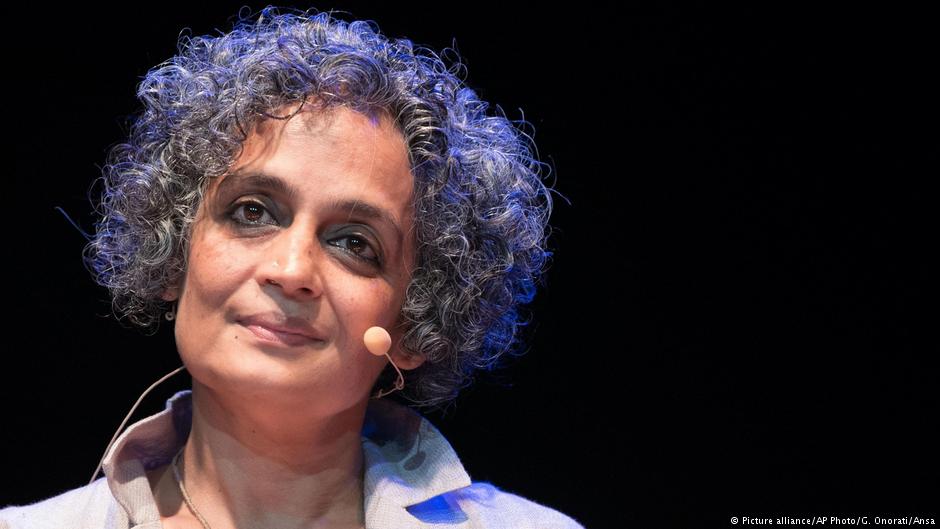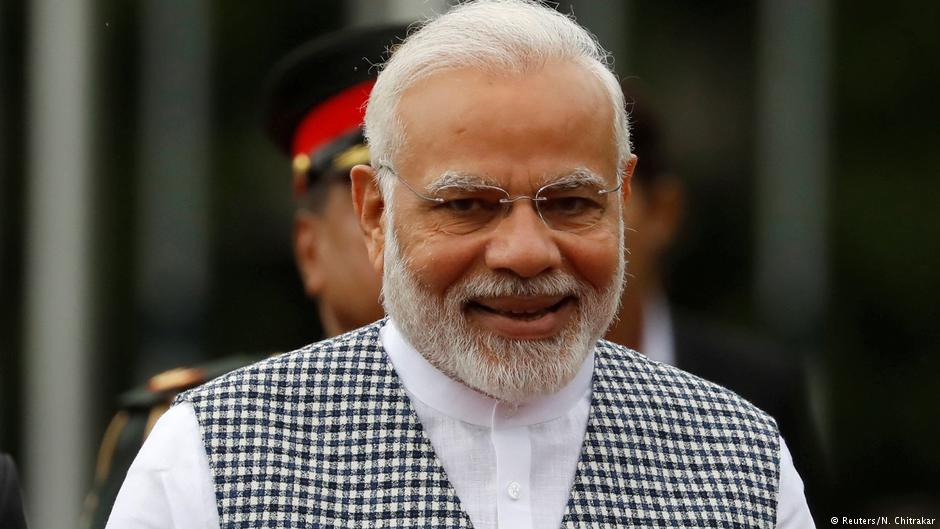"We're up against a fascist regime in India"

Recent arrests of anti-government activists have sparked outrage in India. How would you describe the government's action?
Arundhati Roy: Thousands of people are in jails across the states of Jharkhand, Chhattisgarh and Andhra Pradesh. These are the people who don't have names, who don't have lawyers, who can't hold press conferences. The "Adivasi" (indigenous) community used to be persecuted as "Maoists"; now the Dalits (lower caste Hindus) and anyone who supports them, are being included in this category. We're witnessing a coup against the constitution. It is a very dire situation.
Some analysts and political activists say that the recent government crackdown is reminiscent of former PM Indira Gandhi's declaration of emergency in 1975. Do you agree with the view?
Roy: I think it is potentially more dangerous than the 1975 emergency. The 1975 emergency was supposedly declared to implement the constitution, although it was a violation of the peoples' rights. But this government is trying to overturn the constitution in order to declare India a "Hindu rashtra" (Hindu nation) – more significantly an upper-caste Hindu rashtra, in which the minorities and all those who do not agree with the majoritarian point – can be criminalised.

I think it is going to be an ongoing circus until the general election [next year] – arrests, assassinations, lynchings, bomb attacks, riots and pogroms.
Some experts have pointed out similarities relating to the recent killings of several liberal activists. Who could be behind these apparently systematic attacks?
Roy: The investigation by the Karnataka police into the assassination of the journalist and activist Gauri Lankesh has led to several arrests, which have in turn led to the unveiling of the activities of several right-wing Hindutva (Hindu supremacists) organisations like the Sanathan Sansthan. What has emerged is the existence of a shadowy, full-blown terror network, with hitlists, hide-outs and safe houses, flush with arms, ammunition and plans to bomb, kill and poison people. At the same time, I feel that the authorities can de-rail everything easily, with some major or even minor attacks that are amplified by pet media houses. The recent arrests are an attempt to divert attention from the real threat, I believe.
Is PM Narendra Modi losing his popularity as a result of these actions?
Roy: It has been important for governments – both the former Congress-led United Progressive Alliance and the incumbent Bharatiya Janata Party (BJP) – to disguise their attacks on Adivasis and now, in the case of the BJP, their attack on Dalits, as an assault on "Maoists" or "Naxals". This is because, unlike in the case of Muslims who have been all but erased from electoral arithmetic, all political parties have an eye on Adivasi and Dalit constituencies as potential vote banks.
By arresting activists and calling them "Maoists", the BJP government manages to undermine and insult Dalit aspiration by giving it another name – while at the same time appearing to be sensitive to "Dalit issues". There are thousands of people in jails across the country; poor and disadvantaged people fighting for their homes, for their lands, for their dignity. These people have been accused of sedition and worse, languishing without trial in crowded prisons.
We are up against a regime that its own police calls fascist. In the India of today, it is a crime to belong to a minority. To be poor is a crime. To defend the poor is to plot to overthrow the government. The vulnerable in India are being cordoned off and silenced. The vociferous are being incarcerated. God help us to get our country back.
Interview conducted by Murali Krishnan
© Deutsche Welle 2018
Arundhati Roy is an internationally acclaimed Indian author, best known for her first novel "The God of Small Things," which won the 1997 Man Booker Prize. Roy also writes political essays and advocates the rights of minority groups in India and beyond.
